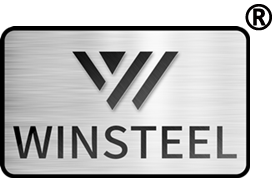| grade | characteristic | Application | |
| austenitic stainless steel | 304 | As a kind of low-temperature steel, it has good heat resistance and corrosion resistance. Good hot workability such as stamping and bending, no heat treatment hardening phenomenon (non-magnetic, service temperature – 196 ℃ ~ 800 ℃)) | Food industry and household products (Class 1 and 2 tableware, kitchen cabinet, indoor pipeline, water heater, boiler and bathtub) |
| 304L | As a Low-C 304 steel, its corrosion resistance is similar to that of 304 steel in general, but its resistance to grain boundary corrosion is excellent after welding or stress relief. It can also maintain good corrosion resistance without heat treatment. It is generally used below 400 (non-magnetic, service temperature – 196 ℃ ~ 800 ℃) | It is applied to outdoor machines, building materials, heat-resistant parts and parts with difficulty in heat treatment in chemical, coal and petroleum industries with high requirements for grain boundary corrosion resistance | |
| 304J | Cu should be added, which has good formability, especially wire drawing and aging crack resistance, and can form products with complex shapes. Its corrosion resistance is the same as that of 304 steel | Thermos bottle, kitchen sink, pot, pot, insulated lunch box, door handle, textile processing machine. | |
| 316 | Mo should be added, so its corrosion resistance, atmospheric corrosion resistance and high temperature strength are particularly good, and can be used under harsh conditions. Excellent work hardening (non-magnetic) | Equipment, chemicals, dyes and papermaking in seawater. Oxalic acid, fertilizer and other production equipment; Photography, food industry, coastal facilities, ropes, CD rods, bolts, nuts | |
| 316L | As a Low-C series of 316 steel, in addition to having the same characteristics as 316 steel, it has excellent grain boundary corrosion resistance. | 316 steel products with special requirements for grain boundary corrosion resistance | |
| 321 | Ti was added to 304 steel to prevent grain boundary corrosion. Suitable for use at 430 ℃ ~ 900 ℃. | Medical appliances, building materials, chemistry, agriculture, ship parts, atomic energy industry, aircraft, exhaust pipe, boiler drum, auto parts (windshield wiper, muffler, molded products) | |
| Ferritic stainless steel | 409L | Due to the addition of Ti, it has good high temperature corrosion resistance and high temperature strength | Automotive exhaust pipes, heat exchangers, containers and other products that need no heat treatment after welding |
| 430 | As a representative steel of ferritic steel, it has low thermal expansion rate and excellent formability and oxidation resistance | Heat resistant appliances, burners, household appliances, class 2 tableware, kitchen sink, external decorative materials, bolts, nuts, CD rods, screens | |
| Martensitic stainless steel | 410 | As a representative of martensitic steel, although it has high strength, it is not suitable for harsh corrosive environment. Its workability is good, and the heat treatment surface is hardened (magnetic). | Blade, mechanical parts, petroleum refining unit, bolt, nut, pump rod, class 1 tableware (knife, fork). |
| 420J1 | High hardness and good corrosion resistance after quenching (magnetic) | Tableware (knife), turbine blade | |
| 420J2 | After quenching, the hardness is higher than that of 420J1 steel (magnetic) | Blade, nozzle, valve, ruler, tableware (scissors, knife) | |
